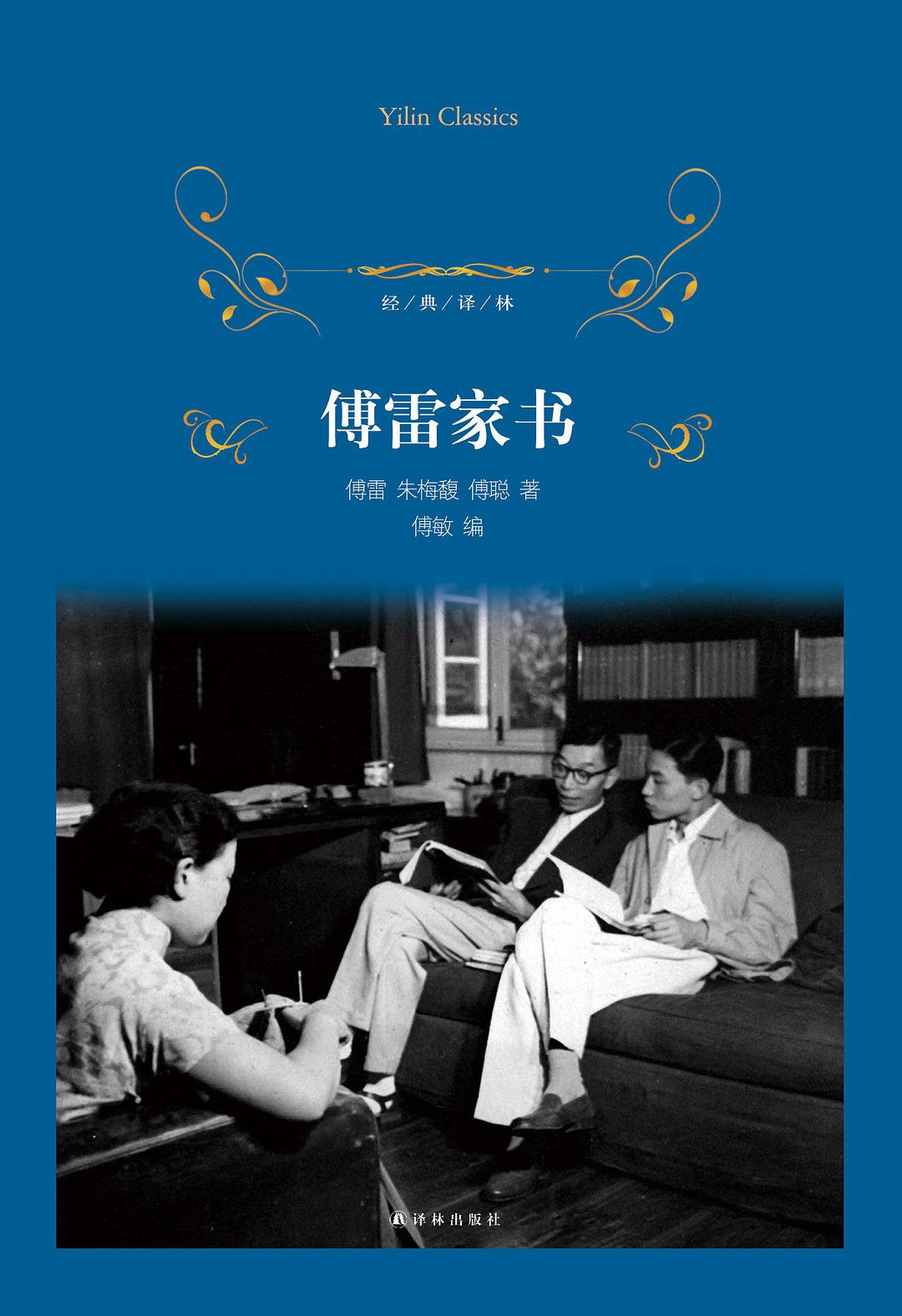
Home Letters by Fu Lei
Cover credit: Douban
Since I'm home, I'm taking my chance to buy and read books in Chinese. Among such list there are a few works by Fu Lei. Fu Lei was one of the Chinese scholars who traveled and studied in Europe before WWII. He shared time with scholars like lady Yang Jiang, musicians such as Wu Yili, making me wonder what he might have to share from their friendships.
Fu Lei was the father of Fu Cong (often spelled Fou Ts'ong in recordings), who, according to Wikipedia, was "the first pianist of his national origin to achieve international recognition."
The book is a selected set of letters between the father (with occasional letters from the mother) and the son from the time when Fu Cong went to study in Poland until Fu Lei's death in 1966. The letters covered discussions on music, as well as life updates while Cong was studying and living in Europe, his marriage to Zamira Menuhin, daughter of Yehudi Menuhin, and birth of their son, etc.
I have an earlier version of the book since high school. However, none of the earlier versions included Fu Cong's letters. I suspect this is due to the national rejection of the pianist, who escaped from returning to China as planned after the commencement of his studies. He later obtained British nationality. The action was long considered "treason" in China, even though Cong had never made any negative remark about China nor had he done anything dishonoring the country. It's very unsatisfying to read letters from only one side without hearing back. So I went to look if there's a version that includes Cong's letters. Luckily in 2016 there was published by Yi Lin a version that arranges the letters in chronicle order, and reads like a back-and-forth correspondence. So I got it immediately and finally could more-or-less follow the conversation.
A bit disappointing to non-Chinese speakers is that the book is only published in Chinese. Even though I do feel much of the emotions can only be understood in a Chinese context, it still feels like a big loss that such great work is completely inaccessible to non-Chinese speakers. I really wish there can be at least a translation some time in the future.
Personally, the book relates to me emotionally a lot for my past experience studying overseas. Because the book is originally from the parents' perspective, it feels like a reflection of what my parents could have thought about while I am away. The difference is that we now enjoy instant correspondence, and we wouldn't share Lei's worry "wanted to write to you a few days ago already, but was worried that we'll receive an earlier letter from you right after sending one out." But the genuine and deep love flows out from Lei's letters via those slow mails.
I was also astonished that Fu Lei not only writes letters to the son, he also writes to Cong's teacher in Poland, his family-in-law the Menuhin's, and perhaps even more. (Astonished as in, imagine my dad writing to my teachers, or colleagues? That idea better stay as amusements in my mind than proceed to reality.) Years after Cong's studies at Poland commenced, the father would still occasionally write to the tacher, addressing him "master my friend", and would send him gifts on occasions such as his son's wedding. Same extends to letters to Zamira, mostly the same content as letters to Cong, but written in English (and in one occasion in French, which Cong didn't even read). The scene reads extremely lovely when Lei explains to his daughter-in-law that while himself and Cong have single character names, they gave two-character-name to the grandson, and why the latter character should be used as nickname.
The awarding read also carries lots of thoughts and discussions on music. While it can be obvious that Cong would write about his experience, and answer questions from his father when inquired (such as "I heard from X that there is a Russian master who requires that the students memorize the music first, without which he would not teach, what do you think about it? Personally, I cannot agree with this."), Lei on the other hand also has deep personal appreciation of classical music and would share to the son his thoughts on a recent performance that took place in China, or a recording he hears from the radio. As a curious classical music listener myself, the book casually drops references to old recordings with critics not bothering with how big those names sound to us today. And I cannot find those more interesting.